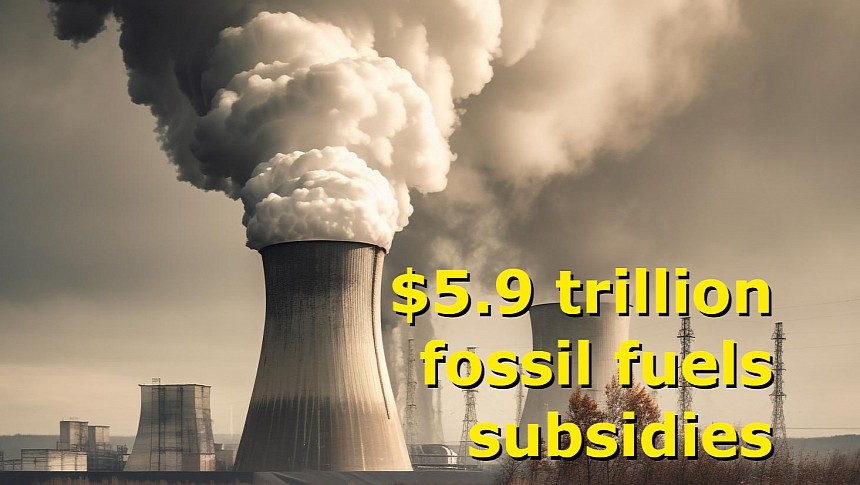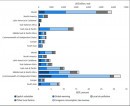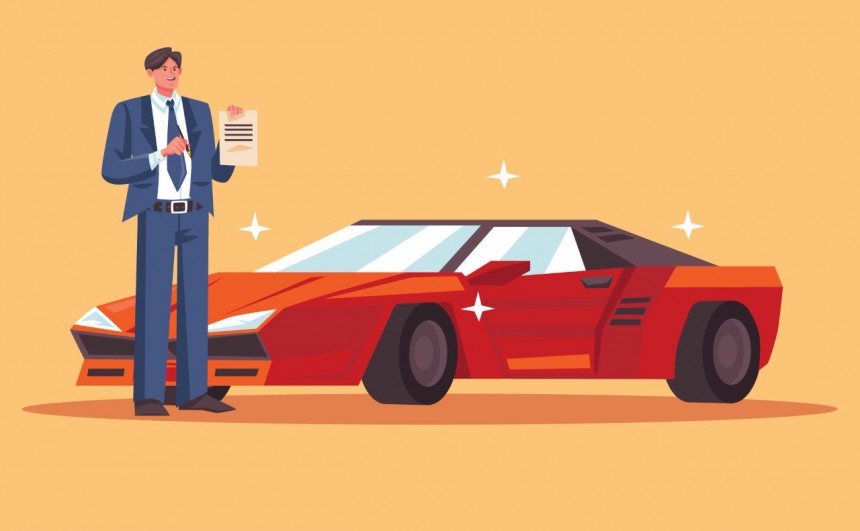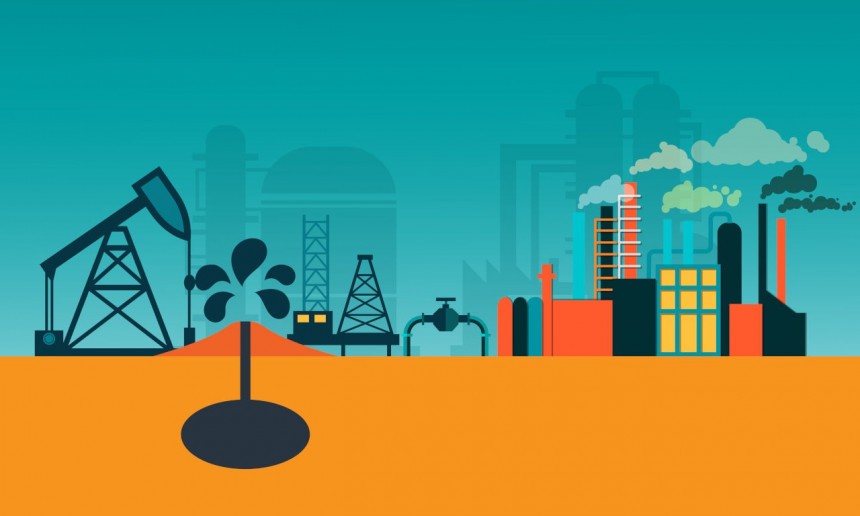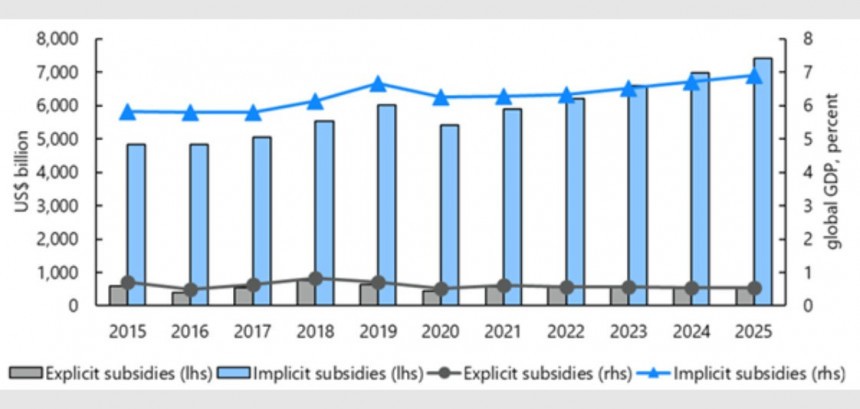There's a high chance that electric cars are the first thing that comes to mind when you hear the term "subsidies." There's also a good chance for you not to care about this complicated economic concept. And there's a very slight chance that you really are familiar with what subsidies are and how they impact economies and, ultimately, our lives.
I must be frank: until the 2008 global financial crisis, I didn't really understand what subsidies are, nor was I interested to find out more about them. But there was a particular moment that changed my view. Do you remember when GM, Ford, and Chrysler CEOs flew to DC in their companies' luxury private jets to ask Congress for $25 billion to avoid bankruptcy?
Tom Schatz, at that time President of Citizens Against Government Waste, told them: "This is a slap in the face of taxpayers. To come to Washington on a corporate jet and ask for a handout is outrageous." Mind you, Rick Wagoneer, Alan Mulally, and Robert Nardelli had the nerve to ask for $25 billion in taxpayer money after they flew in expensive private jets when the economy was collapsing.
It was like a fancy businessman coming out of his Ferrari near a bus stop and asking people nonchalantly to give him money to pay for the leasing. Simple as that. I don't know about you, but the word "outrageous" is far from enough to describe my feelings when faced with that episode. At that point, I realized we should pay much more attention to how the elected government spends subsidies.
Unfortunately, the logic of this statement is perverted by many who point out that using taxpayers' money to tackle a so-called environmental problem – please notice the shadow of a doubt these voices are bringing into the discussion – is the cause of economic problems. Simply put, renewables subsidies distort the real economy, and they are unfair.
The same goes for electric vehicle subsidies, which create artificial competition with internal combustion engine vehicles and ultimately endanger a century-old industry of huge importance for our lifestyle and working habits. Switching to EVs means hundreds of thousands or even millions of layoffs; only the rich will afford to own cars; climate change is a hoax, and they greenwash us only to take our money; and all other sorts of conspiracy theory warnings.
When you put things this way, subsidies are bad. The picture comes down to a hipster coming out of his expensive Tesla and requiring all the good fellows in affordable Corollas or good old F150s to give him much money for nothing and then forcing them to buy Teslas or even give up on their reliable cars. I bet that depicting subsidies this way would anger anyone, especially petrolheads.
I'm afraid I surely must disagree with such nonsense. But then, I know a thing or two besides this very truncated image, and I can prove that the image I just depicted is mostly fake news.
While second-hand smoking – which is inhaling the fumes from a smoker nearby – has somehow little effect on people, it's not the same with transport pollution. All those cars, trucks, and buses roaming in the cities spew nasty pollutants directly into the air we breathe, smokers and non-smokers alike. The "second-hand smoking" from their exhausts has a big toll on our health and, consequently, on the economy.
Too bad we, as a society, are not used (or don't give a damn, frankly) to translate this harm into costs. However, it should be very easy. Just think about a smoker who spends 2 dollars a day on his cigarettes. In 10 years, he literally burns 7,300 dollars, and in 20 years, almost 15,000. At this point, there's an 80% chance he's going to develop a form of lung cancer, which will cost him or the health system tens or hundreds of thousands of dollars. Oh, and how much does the pain and suffering cost?
I simply depicted the negative externalities. Which, in the case of fossil fuels, comes down to air pollution, global warming, climate change, and all the harm they do, ranging from floods, violent storms, wildfires, and so on. All of these have huge costs, and these are more and more of a burden for the whole society.
Oversimplifying the picture, eight billion people and countless other lifeforms are paying the toll for less than two billion vehicles using internal combustion engines. Of course, the energy sector is the number one source of pollution, but the transportation sector is the second one. And apparently, the only one where CO2 emissions and other harmful pollutants still grow year-to-year. But, hey, we love numbers, so the next question is…
So, let's see some values. In the 2019 study "Global Burden of Disease," the World Bank concluded there were 6.4 million premature deaths and 93 billion days of illness because of fine particulate matter (PM2.5). All of these translated to costs of health damages in the amount of $8.1 trillion – or 6.1% of global GDP.
Now, what could we have done with 8,100 billion US dollars in 2019 if they weren't wasted because of pollution? Elon would probably say 1,600 Gigafactories, which could provide batteries for around 800 million Teslas a year. That's half of ALL the cars in use today in the world – and 99% of them use polluting internal combustion engines. Do you see the paradox here?
Let's move on. IMF estimates that fossil fuels subsidies – say what? – were around $5.9 trillion in 2020 or 6.8% of global GDP. I bet it may come as a surprise for many, but all over the world, the oil, coal, and gas industry benefits from subsidies.
To be fair, these subsidies are divided into two categories. Firstly, there are explicit subsidies (undercharging for supply costs, just like in the case of renewables), which account for less than $500 billion. The rest of the $5,400 billion were implicit subsidies (undercharging for environmental costs and foregone consumption taxes).
It's a lose-lose scenario, really. Imposing a fair pollution tax on gasoline, for instance, would enrage society, and most likely, our civilization would collapse. Bye-bye constitutional rights; welcome to Mad Max scenarios. Following the business-as-usual scenario has an even worse outcome, possibly life extinction on Earth. But maybe this is just nonsense, and I sound like an apocalypse-crazy messenger…
Unfortunately, the recent G20 meeting in India at the end of July disagreed on phasing out fossil fuels subsidies. And it's simply outrageous that governments spend more on fossil fuels subsidies than on agriculture and water subsidies, which are critical to avoid devastating hunger and freshwater crisis. Of course, fossil fuel pollution is affecting our most basic resource for living on this planet: the air we breathe.
But somehow, money is much more important than air, water, and food. It's simply madness, don't you agree? Subsidizing so generously the fossil fuels industry – for God's sake, we could use that money to build at least 100 Gigafactories every year! – is like a mobster seizing people on a burning bus and asking them for money to pour more gasoline on the fire.
Now, with that picture in mind, I'd like to know if you still don't care about fossil fuels subsidies or if you still think that's not an issue. I hope you now realize that Elon Musk wasn't kidding some years ago when he proposed the phase-out of EVs subsidies if the government would put an end to those for fossil fuels. It turns out that society – or at least politicians – is too hooked on fossil fuels industry interests. At least, now you'll probably disagree with those blaming renewables and EV subsidies.
Tom Schatz, at that time President of Citizens Against Government Waste, told them: "This is a slap in the face of taxpayers. To come to Washington on a corporate jet and ask for a handout is outrageous." Mind you, Rick Wagoneer, Alan Mulally, and Robert Nardelli had the nerve to ask for $25 billion in taxpayer money after they flew in expensive private jets when the economy was collapsing.
It was like a fancy businessman coming out of his Ferrari near a bus stop and asking people nonchalantly to give him money to pay for the leasing. Simple as that. I don't know about you, but the word "outrageous" is far from enough to describe my feelings when faced with that episode. At that point, I realized we should pay much more attention to how the elected government spends subsidies.
Are subsidies good or bad? Or both?
The debate on this subject is too time-consuming, but I'll briefly touch on the fields related to the auto industry. For instance, the purpose of the subsidies for renewables was to kickstart a much-needed transition from the fossil fuel economy. The reason is very simple – burning fossil fuels to create the energy we need to keep the economy and society rolling results in ever-growing pollution, which slowly menaces our health and the environment.Unfortunately, the logic of this statement is perverted by many who point out that using taxpayers' money to tackle a so-called environmental problem – please notice the shadow of a doubt these voices are bringing into the discussion – is the cause of economic problems. Simply put, renewables subsidies distort the real economy, and they are unfair.
The same goes for electric vehicle subsidies, which create artificial competition with internal combustion engine vehicles and ultimately endanger a century-old industry of huge importance for our lifestyle and working habits. Switching to EVs means hundreds of thousands or even millions of layoffs; only the rich will afford to own cars; climate change is a hoax, and they greenwash us only to take our money; and all other sorts of conspiracy theory warnings.
I'm afraid I surely must disagree with such nonsense. But then, I know a thing or two besides this very truncated image, and I can prove that the image I just depicted is mostly fake news.
Pollution is not a good thing. But how bad is it?
I'm sure everybody understands that burning fossil fuels result in pollutants that affect our health and the environment. The problem is that some of us believe the harm is of little importance, while others simply ignore the future repercussions. It's like the smokers, who are aware of the risk they take smoking a pack of cigarettes a day, but they choose not to care about the health hazards which will most likely occur decades later.While second-hand smoking – which is inhaling the fumes from a smoker nearby – has somehow little effect on people, it's not the same with transport pollution. All those cars, trucks, and buses roaming in the cities spew nasty pollutants directly into the air we breathe, smokers and non-smokers alike. The "second-hand smoking" from their exhausts has a big toll on our health and, consequently, on the economy.
I simply depicted the negative externalities. Which, in the case of fossil fuels, comes down to air pollution, global warming, climate change, and all the harm they do, ranging from floods, violent storms, wildfires, and so on. All of these have huge costs, and these are more and more of a burden for the whole society.
Oversimplifying the picture, eight billion people and countless other lifeforms are paying the toll for less than two billion vehicles using internal combustion engines. Of course, the energy sector is the number one source of pollution, but the transportation sector is the second one. And apparently, the only one where CO2 emissions and other harmful pollutants still grow year-to-year. But, hey, we love numbers, so the next question is…
… how much does the pollution cost, really?
For you or me, it's nearly impossible to translate into money the pollution's harm. But there are others who have the knowledge and resources to do that, like the International Monetary Fund, the World Bank, and other entities of great importance for the global economic system. Of course, it's also possible that you heard these are devil's tools, most likely from those sources claiming climate change is a hoax and that EVs and renewables are bulshit.So, let's see some values. In the 2019 study "Global Burden of Disease," the World Bank concluded there were 6.4 million premature deaths and 93 billion days of illness because of fine particulate matter (PM2.5). All of these translated to costs of health damages in the amount of $8.1 trillion – or 6.1% of global GDP.
Now, what could we have done with 8,100 billion US dollars in 2019 if they weren't wasted because of pollution? Elon would probably say 1,600 Gigafactories, which could provide batteries for around 800 million Teslas a year. That's half of ALL the cars in use today in the world – and 99% of them use polluting internal combustion engines. Do you see the paradox here?
Let's move on. IMF estimates that fossil fuels subsidies – say what? – were around $5.9 trillion in 2020 or 6.8% of global GDP. I bet it may come as a surprise for many, but all over the world, the oil, coal, and gas industry benefits from subsidies.
It's a lose-lose scenario, really. Imposing a fair pollution tax on gasoline, for instance, would enrage society, and most likely, our civilization would collapse. Bye-bye constitutional rights; welcome to Mad Max scenarios. Following the business-as-usual scenario has an even worse outcome, possibly life extinction on Earth. But maybe this is just nonsense, and I sound like an apocalypse-crazy messenger…
Undermining our chance of survival
The costs of using fossil fuels are simply huge because of their harmful effect. But subsidizing the use of fossil fuels, now that's something beyond my logic. Imagine that explicit subsidies reached a record value of one trillion dollars in 2022, at a time when it's imperative to ditch fossil fuels as soon as possible so that we can have a chance to adapt to climate change.Unfortunately, the recent G20 meeting in India at the end of July disagreed on phasing out fossil fuels subsidies. And it's simply outrageous that governments spend more on fossil fuels subsidies than on agriculture and water subsidies, which are critical to avoid devastating hunger and freshwater crisis. Of course, fossil fuel pollution is affecting our most basic resource for living on this planet: the air we breathe.
Now, with that picture in mind, I'd like to know if you still don't care about fossil fuels subsidies or if you still think that's not an issue. I hope you now realize that Elon Musk wasn't kidding some years ago when he proposed the phase-out of EVs subsidies if the government would put an end to those for fossil fuels. It turns out that society – or at least politicians – is too hooked on fossil fuels industry interests. At least, now you'll probably disagree with those blaming renewables and EV subsidies.
